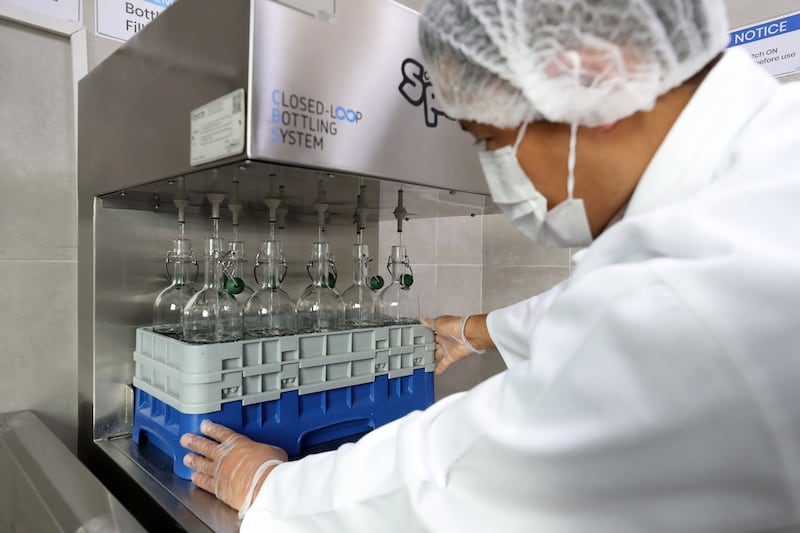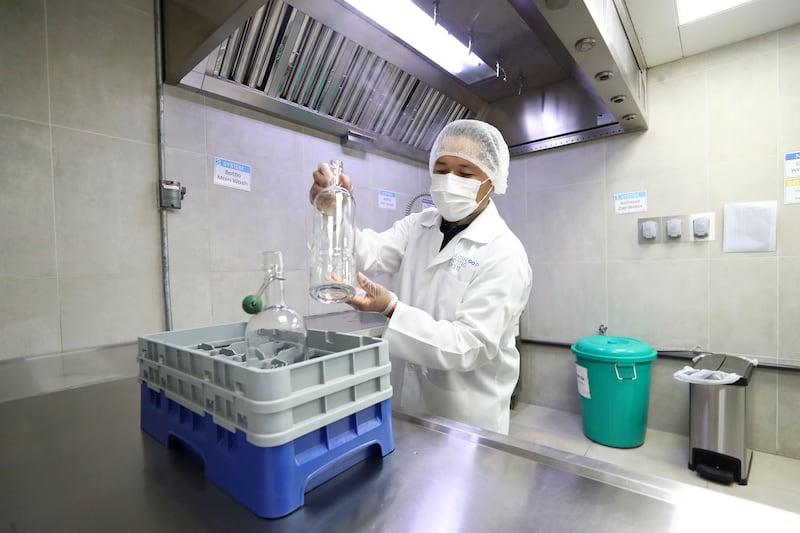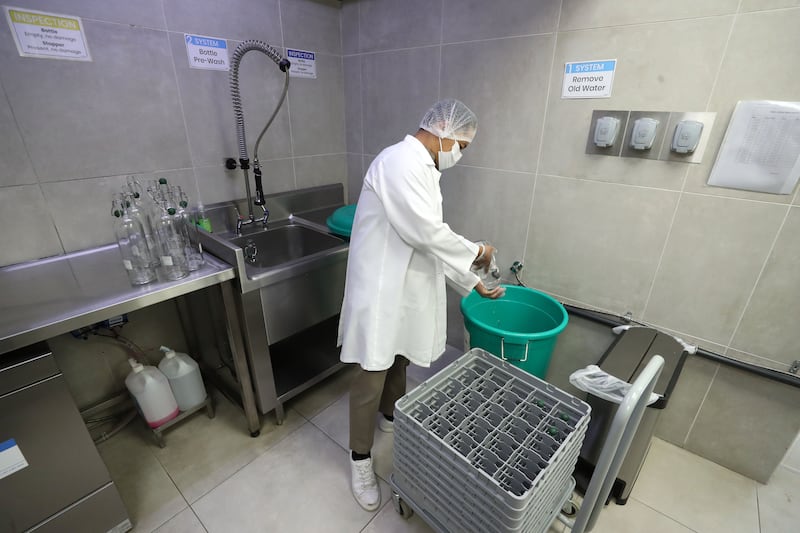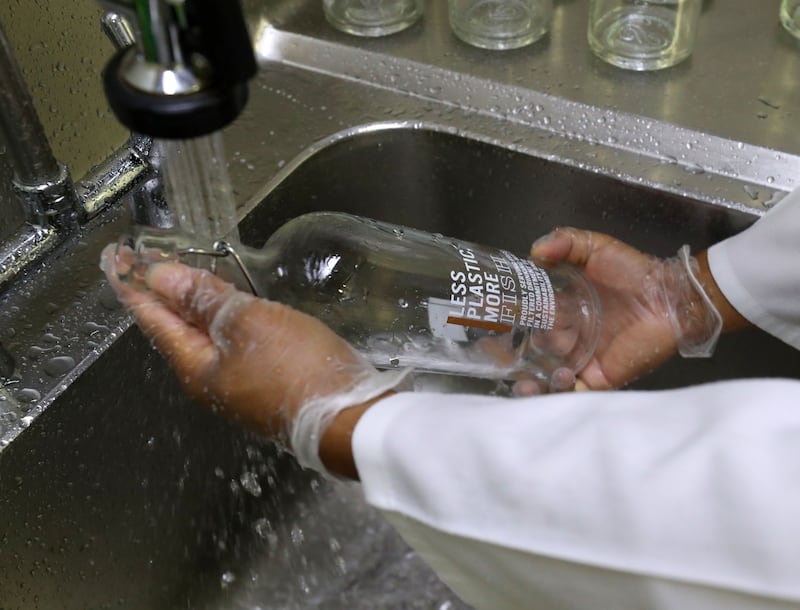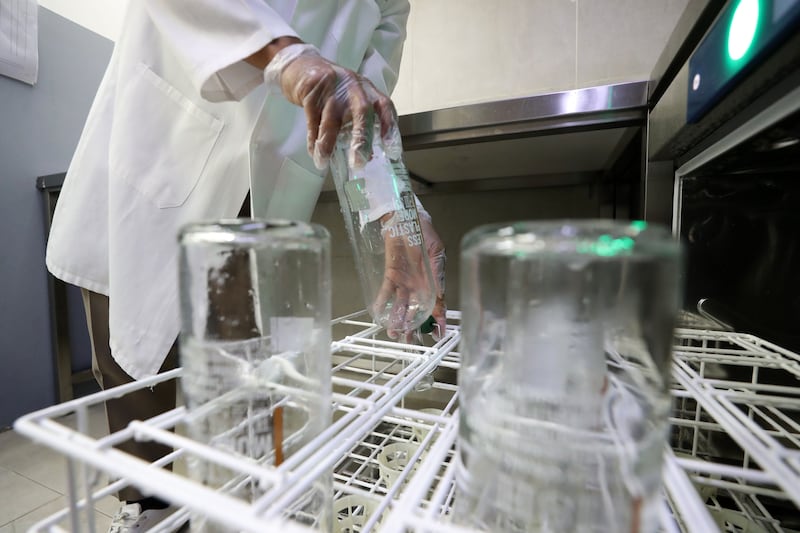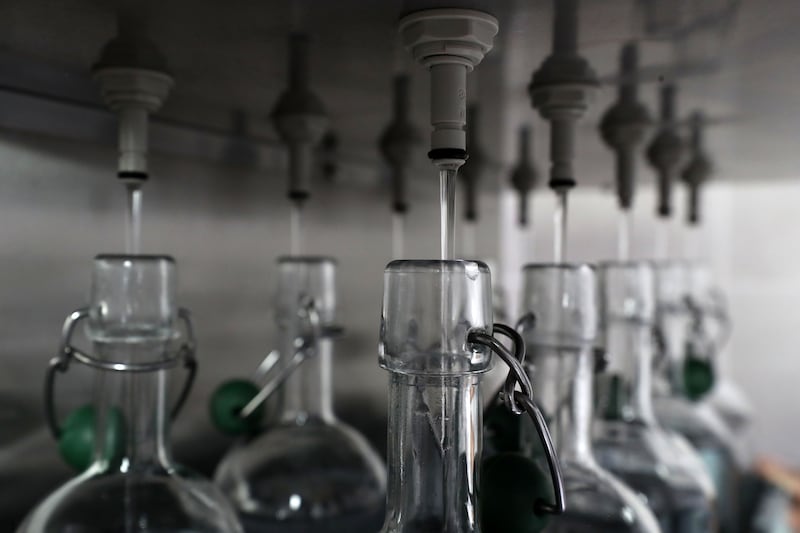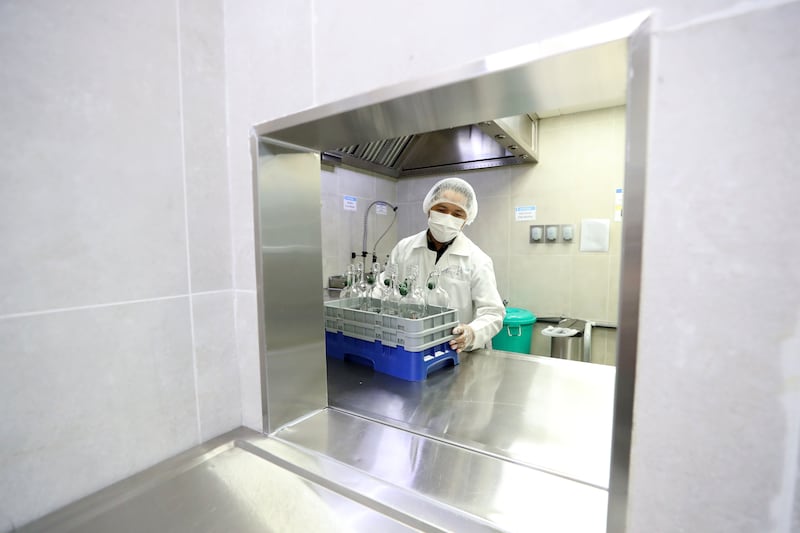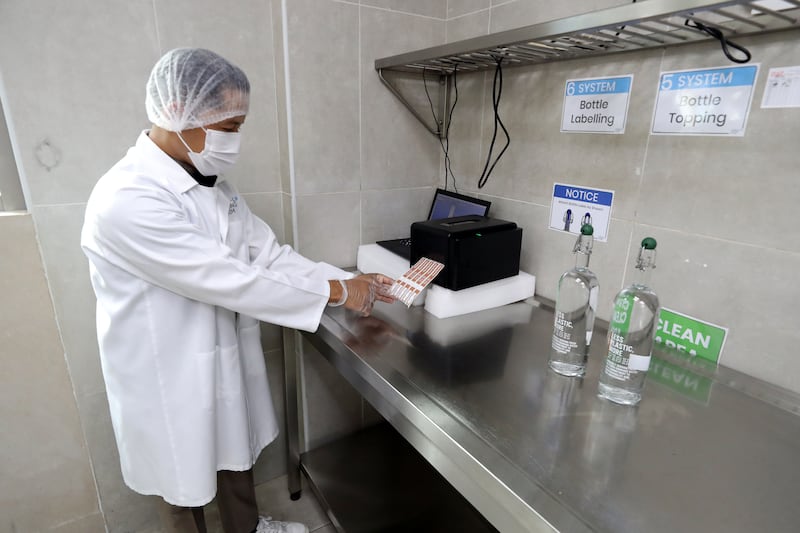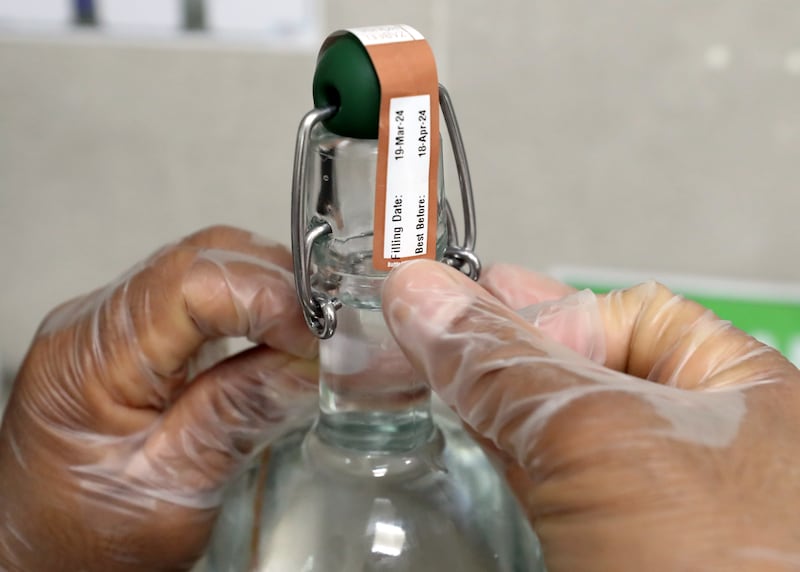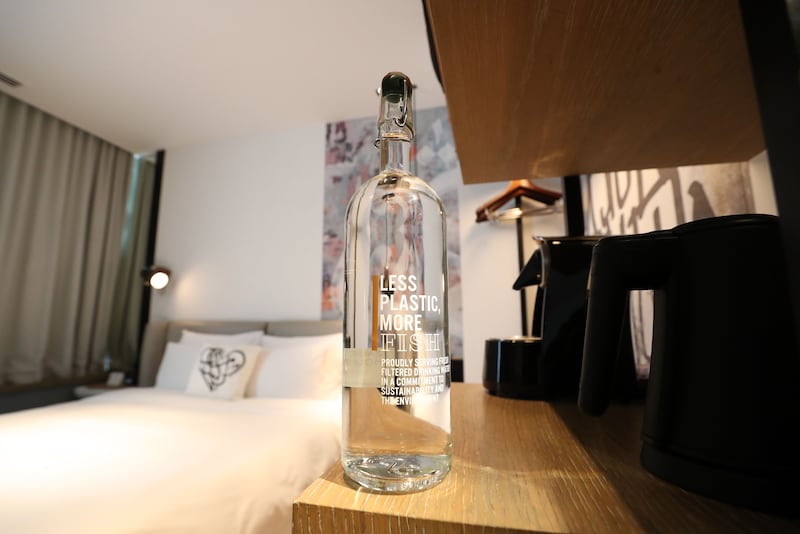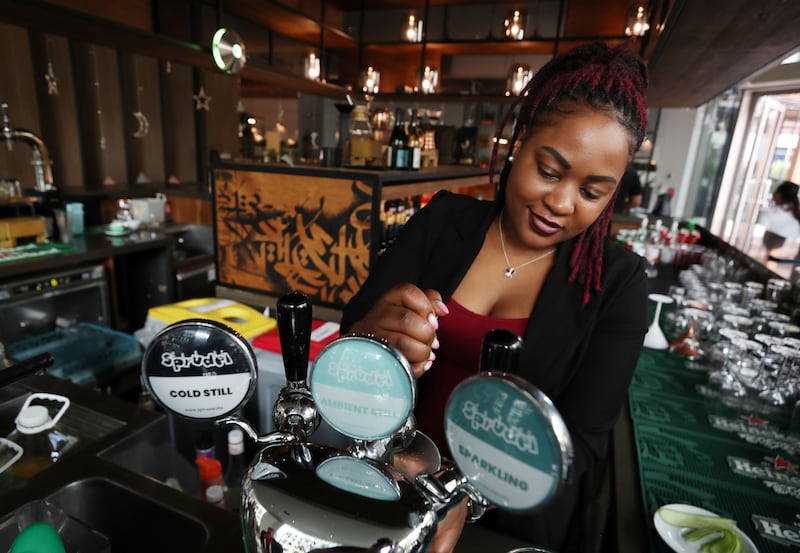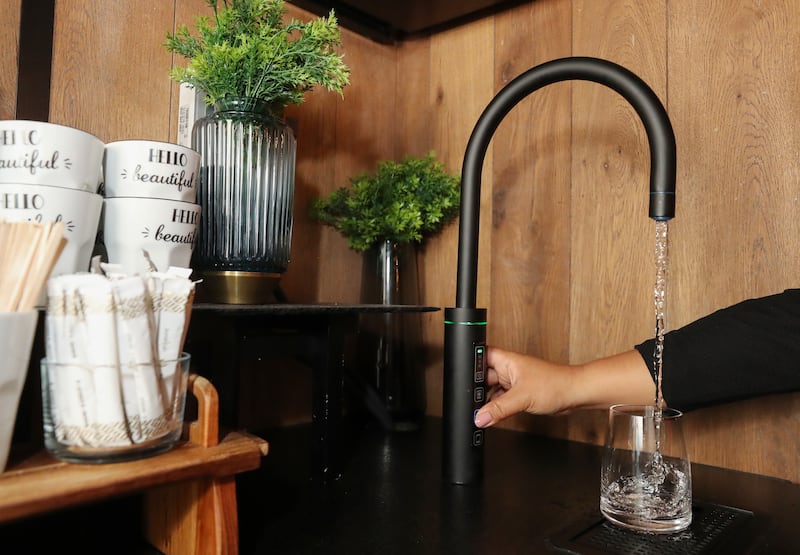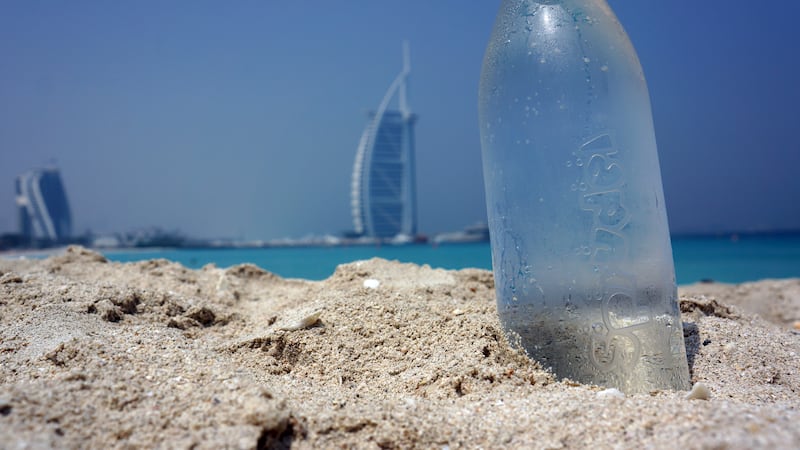Shawn Green remembers Dubai back in the early 1990s, when he’d ride around his neighbourhood on his bike and drink water from public fountains made of stainless steel.
Although Mr Green, 41, holds a British passport, he has always had an affinity with the UAE.
He grew up here, attending Sharjah English School and The English College before he went to Germany in the early 2000s for an apprenticeship and to study mechatronic engineering.
After spending about 10 years abroad, he came back to the UAE – something he said he'd always wanted to do – and kids were no longer drinking from those public fountains.
“Everyone was drinking from plastic bottles,” he says.
“I had seen technology in Germany for water dispensers that can make sparkling water from tap water, so it was always in the back of my mind to do something with that in the Emirates.
"But then seeing the amount of plastic waste and spotting a gap in the market, I knew I had to do something.”
In March 2014, he went to the Dubai Department of Economy and Tourism and incorporated Sprudel, an eco-friendly water company, which has been gaining traction steadily over the past decade.
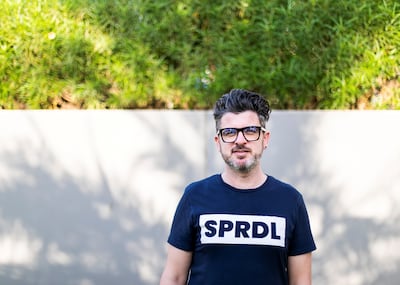
The mission to eliminate plastic bottles
One million plastic bottles are bought every minute globally, according to the UN Environment Programme, and half of all plastic produced is designed for single use.
The amount of plastic waste generated around the world increased more in the 2000s than it had in the previous 40 years.
If this trend continues, the UN says worldwide production of primary plastic is forecast to reach 1,100 million tonnes by 2050.
This is bad news for the environment and our health. Single-use plastics are a major contribution to ocean pollution, but also, because plastic items never fully break down, microplastics can enter the human body through inhalation and absorption, and accumulate in our organs.
Several studies have found plastic-associated chemicals are linked to major health concerns and a 2021 study detected microplastics in placentas providing oxygen and nutrients to developing babies. But the full extent of the impact on human health is still unknown.
For all these reasons, Mr Green felt compelled to curb the volume of single-use plastics in the country he calls home.
The mother of invention
Sprudel means “sparkling water” in German, so while there were other companies in Dubai offering water-dispenser solutions at the time, Mr Green was the first to introduce the concept of turning regular tap water into a carbonated drink.
Now, Sprudel works predominantly with businesses to install taps with filtered water that allow them to eliminate single-use plastic bottles on their premises.
The company's dispensers are connected to the mains, providing a constant supply. They're also fitted with a filter that removes what Sprudel says is 99.9 per cent of bacteria and sediment, as well as neutralising the taste of chlorine.
A sample is taken to a Dubai Municipality-approved laboratory to be tested against UAE standards for unbottled drinking water, then an external CO2 bottle can be connected to create sparkling water on tap.
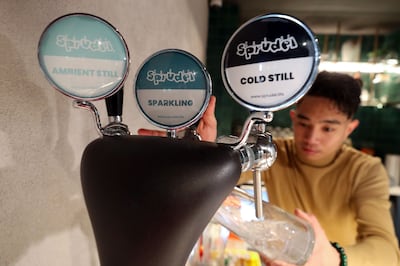
Mr Green has also invented a high-capacity, closed-loop bottling system for hotels, so they can remove plastic bottles from their rooms, outlets and staff areas.
He created the first prototype in his own back garden during the pandemic and Zabeel House by Jumeirah, The Greens was the first property to install one.
They now feature in 23 hotels across the Emirates, each individual system designed, engineered and made in the UAE specifically for the hotel industry.
The systems, which can have a capacity of about 800 bottles per hour, are installed on the premises of the hotels. Whenever a bottle is finished, housekeeping collects it and it goes through the system to be washed then stored in sanitised crates.
“Then it gets labelled with the date and time of bottling, put back into the delivery crates and shipped off to that same room on each floor," Mr Green says.
It's created with smaller properties in mind, as it’s a more manual operation than larger, automated systems used for bigger resorts, but Mr Green says it can be used for hotels with up to 400 rooms “at a stretch”.
The bottling system is made with imported stainless steel, a requirement of the hospitality industry, although Mr Green says he’d love to use aluminium instead.
“About 80 per cent of the world’s aluminium is made here, but we’ve looked into that, we’ve asked the people who are making the decisions, and it’s not viable. [Stainless steel] is easier to clean, it doesn’t stain, from a molecular level it’s a lot smoother and there's less chance of bacteria growth.”
An hour's worth of plastic bottles
The challenge with his new system at first was that the Sprudel team, which now comprises five employees, was trying to retrofit it within the hotel’s already-existing plumbing network.
“Now I have the luxury where about 80 per cent of the current pipeline are new builds, so we can go in to the architects and tell them what we need, instead of trying to shimmy it into a space that wasn’t made for that," says Mr Green.
He estimates that, today, Sprudel is eliminating up to 35 million plastic bottles a year in the UAE. It’s a rough calculation that he reaches by using hotels’ historic data of purchasing, as well as Sprudel’s own information gathered among corporate clients.
Within the next three years, Mr Green is aiming to hit 60 million a year. “Worldwide, there’s a consumption of a million bottles a minute, so we want to do an hour’s worth of that.”
He’s already got several new UAE-based hotel and corporate clients lined up but he’s also working on two new prototypes, the details of which he cannot yet reveal, with plans to release at least two new products per year, all designed and manufactured in the UAE.
Sprudel is also planning to expand operations to other Gulf nations and further afield.
Most importantly, Mr Green wants to continue spreading awareness of the environmental and health hazards of single-use plastic.
“Facts and evidence are the key to encouraging consumers to be conscious of their consumption and contribute to environmental conservations," he says.
